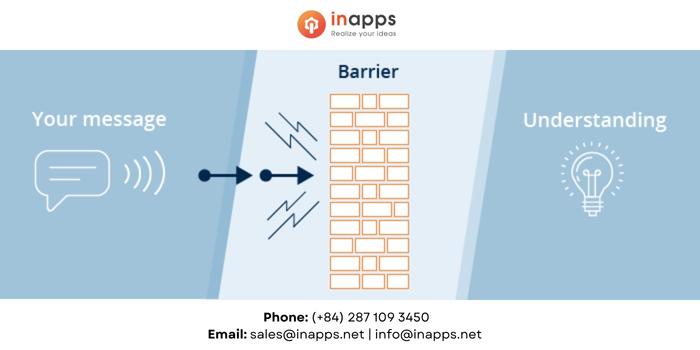- Home
- >
- Offshore News
- >
- How to manage cross-cultural communication barriers with offshore teams
Nowadays, diversification is exemplary in most workplaces. With the growth of technology, it’s not uncommon to deal with clients and customers from all over the world. While this may be the new benchmark, the possible objections to diversity cannot be ignored.
Language barriers may make it arduous to communicate adequately, or cultural disparity may impede internal and external customers from being convenient enough to open up, socialize, or bond. Cross-cultural communication barriers make it worse when working with offshore teams. Communication obstacles can include communication barriers, lack of attention, boredom, lack of interest, interest, distractions, and irrelevance to the receiver.
These potential issues may curb relationships in the workplace; therefore, if you plan to do business on a global level, you need to find solutions to break down any barriers.
What are cross-cultural barriers?

What is cross cultural barriers?
Cross-cultural barriers are the challenges faced in communication, understanding, and interaction between people from different cultural backgrounds. These barriers can hinder effective communication, collaboration, and business dealings in a globalized world.
Here are some of the common types of cross-cultural barriers:
Language: Employees coming from different countries also mean differences in language and the lack of a common medium of communication. Translations are not always effective in conveying the true meaning, making language a critical barrier.
Stereotypes and Prejudices: Stereotypes refer to negative preconceived notions about people from different countries. Stereotypes lead to prejudices among people and influence their behavior toward each other.
Signs and Symbols: The hand gestures, signs, or symbols used in different cultures and countries differ from each other. Any difference in the meaning of each sign or symbol used can create a conflict-like situation.
Behavior and Beliefs: Behavior, like gestures, body language, manners, and style of communication, also differ from culture to culture. All this can lead to a lack of proper communication and even a conflict in the case of a mismatch of beliefs.
“Us” vs. “Them”: People generally have the “Us” vs. “Them” feeling. They act differently toward outsiders who don’t behave the way they want, alienating them. This leads to cross-cultural issues in management.
How to manage cross-cultural communication barriers with offshore teams

How to overcome cross cultural communication barriers with offshore teams?
1. Learn a few key phrases
Clear communication is crucial for compelling functioning, it is necessary that each of your employees understand what your clients and customers need. Depending upon the number of clients or customers with whom you work and the amount of diversification, it may not be possible for you to learn all the languages, but learning a few greetings and key phrases can go a long way.
You may want to consider the form of a foreign language or cross-cultural training for employees who deal with clients of a specific culture. Amass a list of books and put them on a “recommended reading” list. One good one is “Kiss, Bow or Shake Hands: The Bestselling Guide to Doing Business in More Than 60 Countries” by Terri Morrison and Wayne A. Conaway.
2. Know about your client’s culture
Taking the time to research or inquire about another’s culture can go a long way to making them feel comfortable. Learn about the things your clients and customers like and value: their food, their customs and protocol, business practices, and what they do for fun.
Since there is a host of information available online, you can easily discover the basic credo of their culture. Because of your extra effort, the people with whom you work will feel appreciated and will be more apt to recommend you and do business with you in the future.
3. Bolster gratitude for cultural differences
Set aside a special day where you ask a few employees or co-workers to share aspects of his or her culture or a client’s culture with everyone. Make it fun. Ask the employees to give a “Lunch-and-Learn” presentation featuring the foods, ceremonies, and other aspects of that culture.
This will not only promote socialization, but it will also give each person the opportunity to learn about and appreciate one another’s culture. Also, you can invite your employees to write a feature article in your newsletter or internal communications about a particular culture.

4. Always aspire to learn new things
While traveling to visit clients in other countries, be open to trying new things like the food at least once. Even if you don’t like something, you will be appreciated for making the effort.
If you are allergic or prefer not to devour in something like drinking alcohol do not compromise your own values, however, to accommodate theirs. You are permitted to respectfully decline. The idea is not to create boundaries but to build bridges and open the door to cultural differences.
5. Be Hospitable
If your employees, clients or co-workers have cultural requirements, like prayer times or religious holidays, accommodate their needs into your work schedule. You would certainly want someone to respect your culture if the tables were turned.
Regardless of your business type, keep an open mind. Know that your way is not the only way. You don’t need to change your culture or convince others to change theirs, but rather, find common ground where everyone can understand each other and respect and embrace cultural differences.
6. Prioritize real-time communication and feedback
Due to time zone differences, you and your offshore team may not engage in real-time communication as often. That’s why both need to prioritize the little time you have to hop on live meetings together. Real-time interaction helps clear any questions and makes sure everyone is on the same page. In case any problems arise, you can solve them faster.
You and your offshore team members can utilize suitable team management and communication tools to check. Don’t forget time zone differences when scheduling real-time meetings. Consider rotating meeting times to accommodate team members in different locations.
Need to hire a team of offshore developers with minimum cross-cultural risks involved, contact InApps.
>> Read next: 7 Tips to Embrace Cultural Differences with Offshore Teams
Let’s create the next big thing together!
Coming together is a beginning. Keeping together is progress. Working together is success.



















